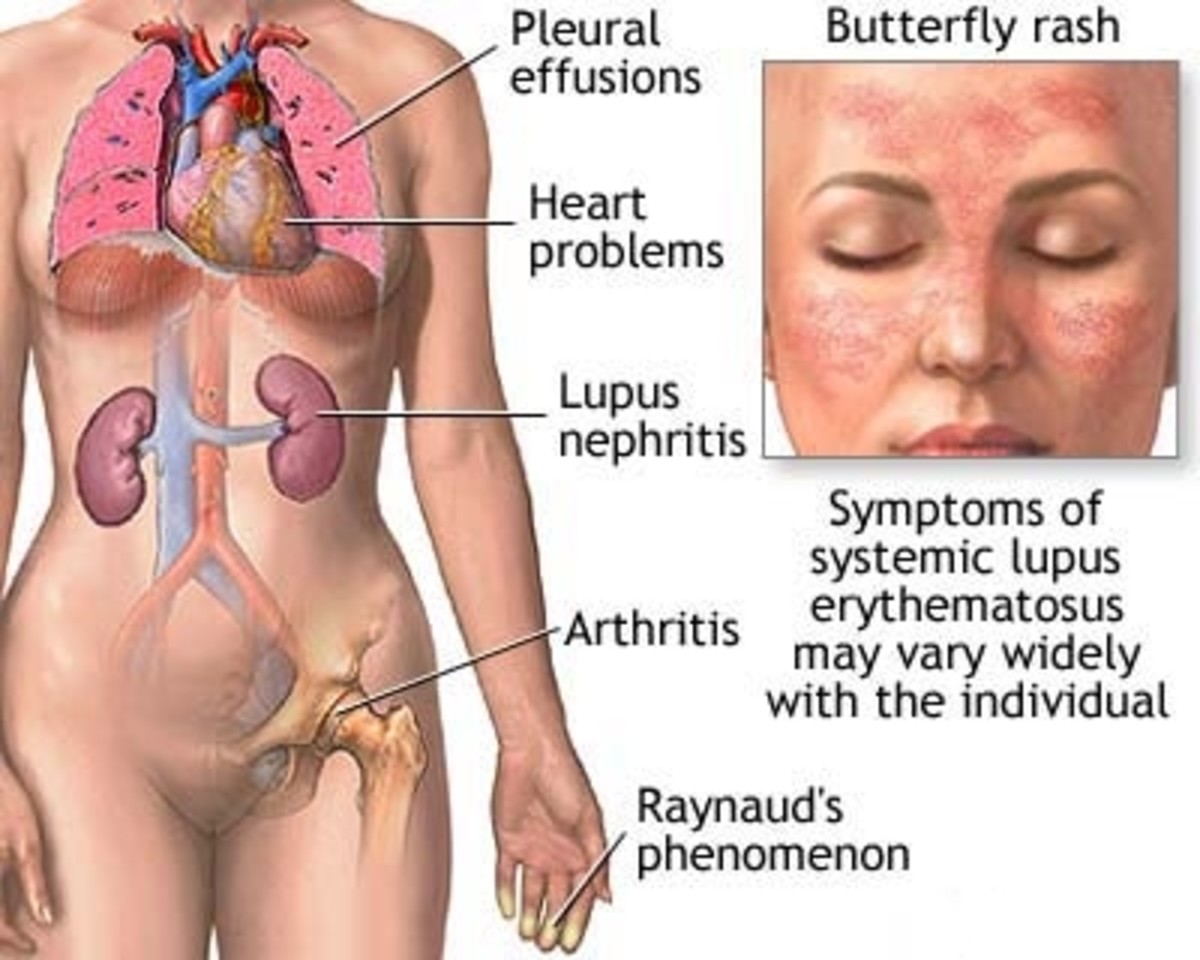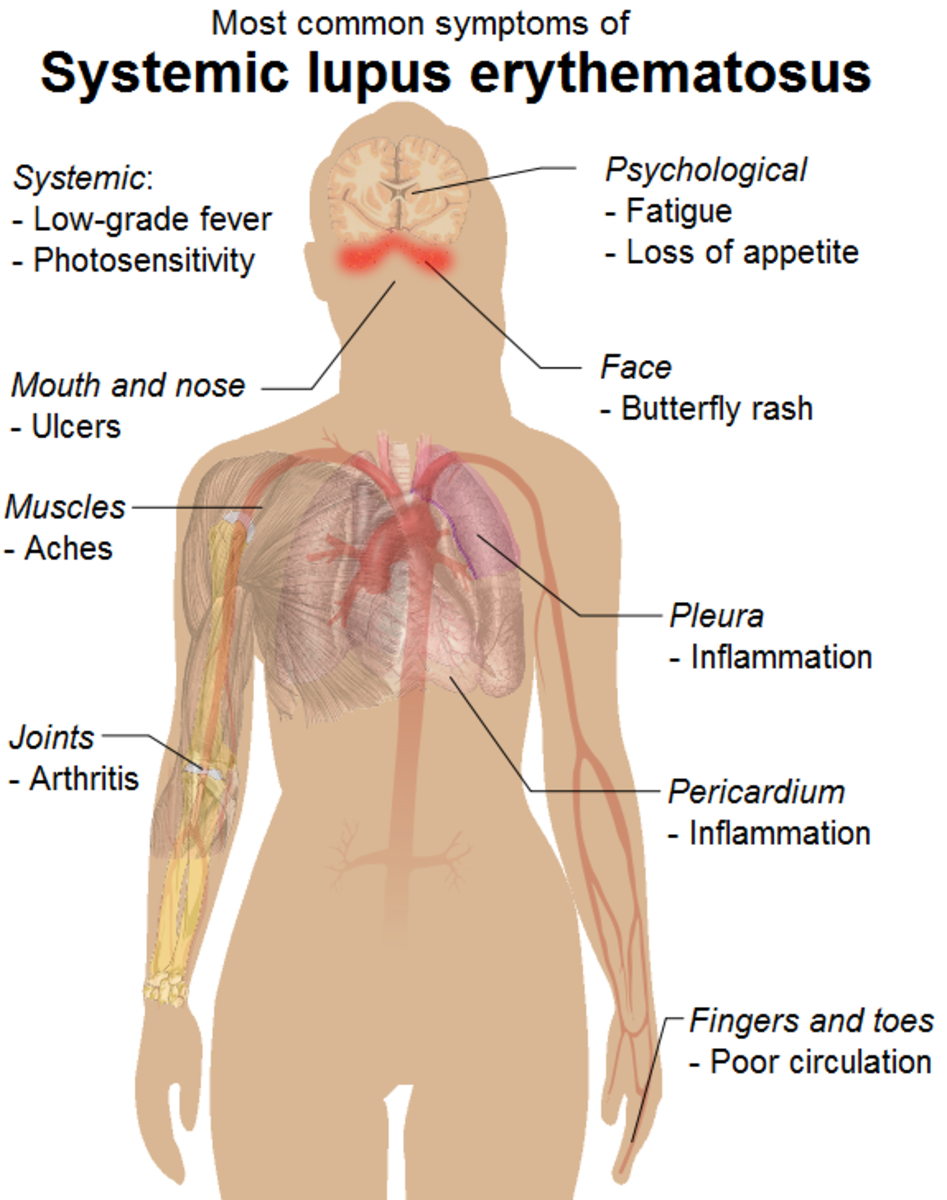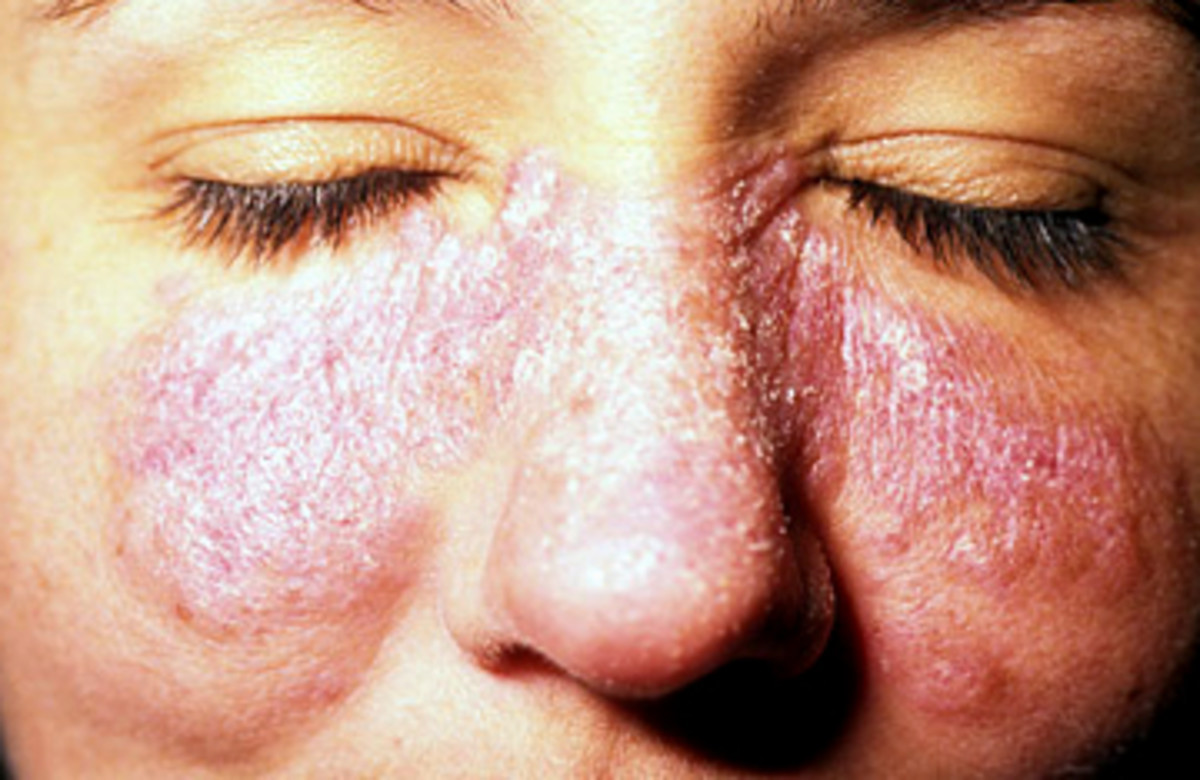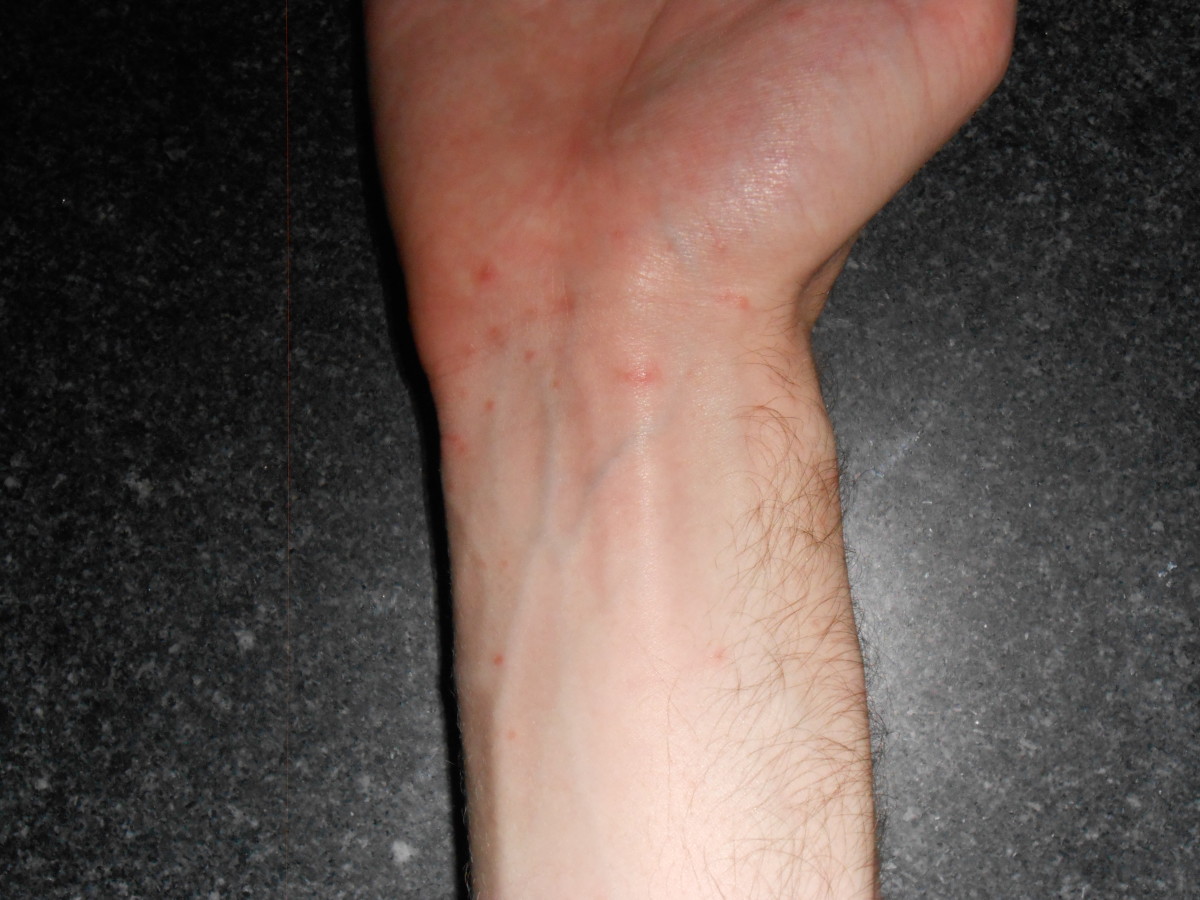Systemic Lupus Erythematosus
What is an Autoimmune Disease?
Are you familiar with autoimmune disease? Our bodies have an amazing system of defense. We’re constantly bombarded by invading viruses and bacteria, but only a fraction make us ill. When part of the body is an unwilling host of such an invader, the nearby lymph nodes go into battle mode. When the body’s lymph fluid travels through the node, bacteria and viruses are trapped and attacked by highly specialized white blood cells. These blood cells, known as lymphocytes, destroy the harmful substances and prevent them from doing more damage.
This system is highly efficient in most people. For some reason, however, in some individuals, the body gets its wires crossed. When the immune system gets the wrong message, it attacks healthy tissue. In essence, the body attacks itself. Such a condition is referred to as an autoimmune disease.
There are several autoimmune diseases, including rheumatoid arthritis, ulcerative colitis, Graves’ disease, and Crohn’s disease. Another autoimmune disease is lupus.
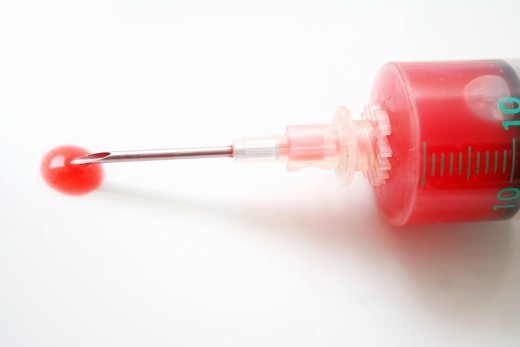
Who Gets Lupus?
There are several risk factors for developing lupus. Almost 90% of the individuals suffering from the disease are female, especially between the ages of 15 and 45. Lupus sometimes runs in families. If you have a relative with lupus, your chances of developing the condition could be increased by as much as 13%. Also, non-Caucasians are more likely to develop lupus, including blacks, Asians, Latinos, Native Pacific Islanders, and Native Americans.
Some individuals who develop the disease, however, have no known risk factors.
The Four Types of Lupus
There are four types of lupus: cutaneous lupus, drug-induced lupus, neonatal lupus, and systemic lupus erythematosus – SLE for short.
Cutaneous lupus erythematosus involves the skin. It causes a rash or sores on the face, the neck, in the mouth, in the vagina, or in the nose. When it affects the scalp, hair loss usually occurs.
Drug-induced lupus is associated with some prescription drugs. These include isoniazid, hydralazine, and procainamide. Symptoms usually dissipate after the drug has been discontinued for several months.
Neonatal lupus is extremely rare. It affects babies born to women with lupus. Many of the symptoms disappear when the infant is several months old, and they often cause no permanent damage. A few of these infants, however, are left with a heart defect.
SLE is the most common form of lupus.
Symptoms of SLE
The symptoms of systemic lupus vary among individuals. Some people with the condition have severe symptoms, resulting in total disability,and some have mild symptoms. Also, the symptoms do not present every day. An individual with lupus might go weeks with no obvious ill effects, or when they suffer only mild symptoms. When the symptoms are present and are more severe, it’s called a “flare.”
SLE can have some serious complications. One is pulmonary hypertension, a dangerous increase in the blood pressure in the lungs. Lupus can also damage the kidneys to the point of requiring dialysis. The nervous system can become inflamed, causing headaches, strokes, and dementia. Lupus can also cause serious damage to the heart, the bones, the blood cells, and the brain.
Someone suffering from SLE might feel tired and lethargic much of the time. They may also have painful muscles and joint pain. They might have an unusual sensitivity to light, a low-grade fever, swollen lymph nodes, or chest pain. Depression and anxiety are common among lupus patients. Other symptoms of SLE include hair loss, weight loss, anemia, and swelling of the hands and feet. Scaly skin rashes and ulcers in the nose and mouth are common. The most indicative skin rash associated with lupus is a malar rash. This patch of red covers the nose and the cheeks in a butterfly pattern.
How is SLE Diagnosed?
Since SLE affects those who have it in different ways, it’s sometimes difficult to diagnose. The symptoms can mimic other diseases and conditions, and there’s no 100% definitive test for SLE. For these reasons, the American College of Rheumatology has composed a list of eleven criteria for systemic lupus. If a patient has or has ever had at least four of these symptoms or lab findings, his physician will likely diagnose him with SLE:
· Butterfly rash
· Discoid rash on the face, neck, arms, torso
· Photosensitivity – rash caused by exposure to bright UV light
· Mouth or nasal sores
· Joint swelling, stiffness, or pain in two or more joints
· Inflammation of the membranes around the heart or lungs
· Increased protein, clumps of red blood cells, or kidney cells in the urine
· Nervous system problems with no known cause
· Reduced red or white blood cells or platelets
· Increased autoimmune activity per blood tests
· Positive antinuclear antibody test (ANA)
If you’ve experience at least four of these symptoms and are diagnosed with SLE, your doctor will probably order more lab work and studies to determine whether or not the disease has caused damage to your internal organs. If you have suffered damage, the studies will help your physician how extensive the damage is and how best to address it. Such studies might include blood tests, urine tests, x-rays, a tissue biopsy of the kidneys or other tissue, an echocardiogram, a CT scan, or an MRI.
Lupus treatment
As of this date, there is no cure for SLE, but it can be managed. It’s important to commit to all the tests and studies your doctor recommends so that he can discover exactly what the disease is doing to your body. The key to managing SLE with lupus treatment is to prevent major damage to internal organs.
To help control the disease and to alleviate symptoms, nonsteroidal anti-inflammatories are often prescribed for lupus treatment, along with oral corticosteroids for inflammation and corticosteroid creams for skin rashes. More serious cases of SLE might be treated with drugs that suppress the action of the immune system or with antimalarial drugs.
There are several things a patient with SLE can do to help themselves. One important lupus treatment is to get adequate rest. If you have been diagnosed with lupus, you must learn to pay attention to your body. When it’s tired, stop and rest. Another lupus treatment is to eat a healthy diet, including lots of fresh fruits and vegetables and lean protein. If you smoke, stop now. Avoid being around smoke, too. Try to engage in regular mild exercise. Talk to your friends and family members about your condition, and educate them about SLE. Keep all your doctors’ appointments, and always alert your health team to any changes in your symptoms.
If you think you might have lupus, see your doctor as soon as possible. some of the symptoms mimic other diseases and conditions, so you might have lupus and not even be aware of it. Your symptoms might also be caused by another autoimmune disease, so seek help.
Read more about health:
- Why Do Pet Owners Live Longer?
If you have a pet, or if you've ever owned a pet, you probably already know that having a furkid around can add a lot of happiness to your life. Sure, caring for an animal can be time consuming and... - HGH: Miracle or Myth
You've probably heard a lot in the news lately about HGH, or maybe you've read about it in magazine or newspaper. So what is this stuff, anyway? And why all the hoopla? HGH stands for human growth... - The Importance of Long Term Disability Insurance
Do you have long term disability insurance? Take it from me you need it! I dont care how healthy you think you are, you never know what the future holds. You could come down with a long term illness or... - How to Get Social Security Disability
Note: If you're trying to scam the government with a false claim of an injury, illness, or condition, read no further. This article is to help people who are legitimately unable to work a full time job... - Natural Cures for Insomnia
Theres nothing quite as frustrating as tossing and turning in your bed, trying your best to fall asleep. You know you need sleep in order for your body to re-charge. You're trying, but it seems the... - MGUS: Living with a Time Bomb
I have MGUS - monoclonal gammopathy of unknown significance. Never heard of it? Neither had I until it was discovered on a routine blood test. When I got the lab reports from my doctors office to forward... - http://hubpages.com/hub/Sports-Drinks-or-Water-Which-is-Better
- Emergency Dental Care: What to Do at Home
Toothaches and injuries to the teeth and gums can be extremely painful. They can also be serious. In fact, some type of infections will not only damage or destroy the tooth, but they can also spread... - Soy: Benefits and Possible Dangers
You see and hear it everywhere on TV, in magazines and newspapers, and even on the radio: why certain foods and dietary supplements are good for you. Some make amazing claims. If, however, you take... - Vitamin D: How and Why to Take It
Vitamin D is a fat-soluble vitamin that the body needs in order to absorb calcium for strong teeth and bones and to help prevent osteoporosis. Vitamin D is also necessary for proper blood clotting, the...

